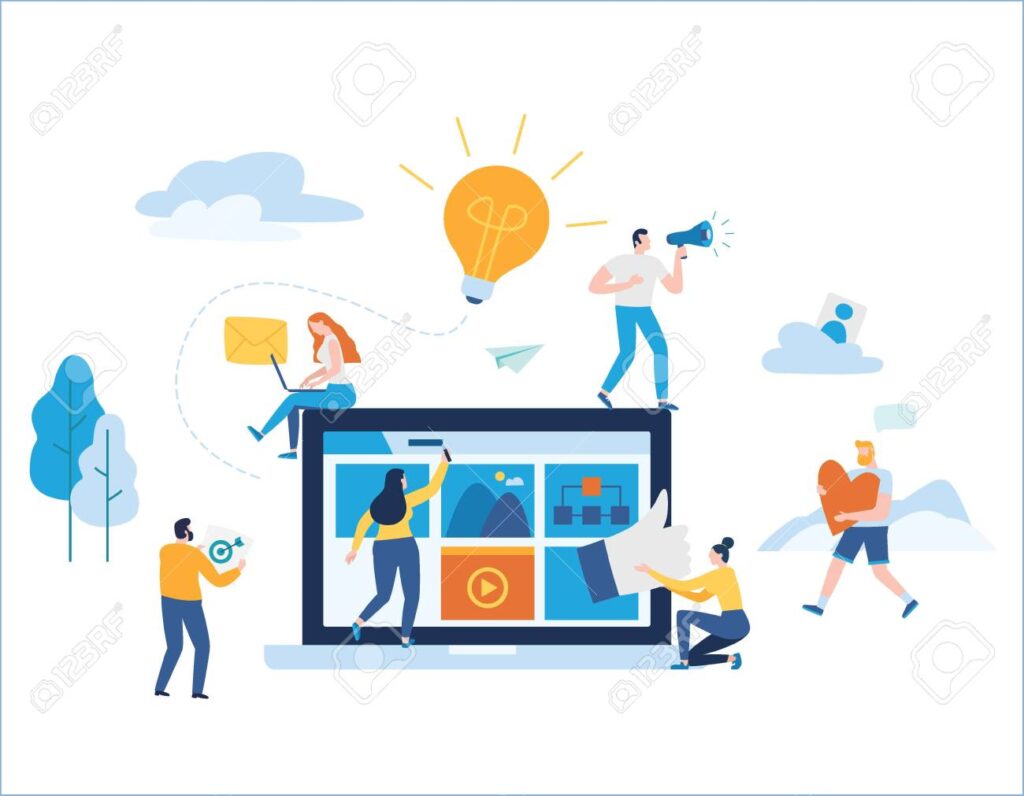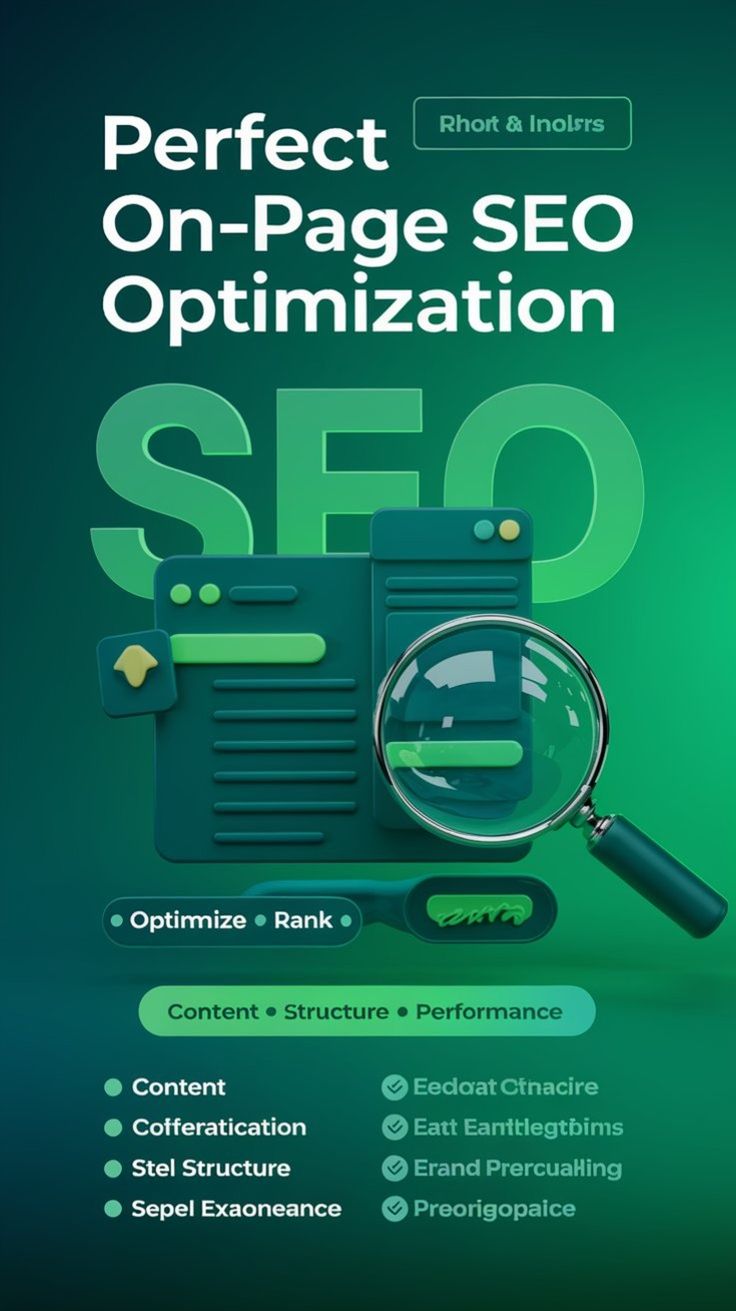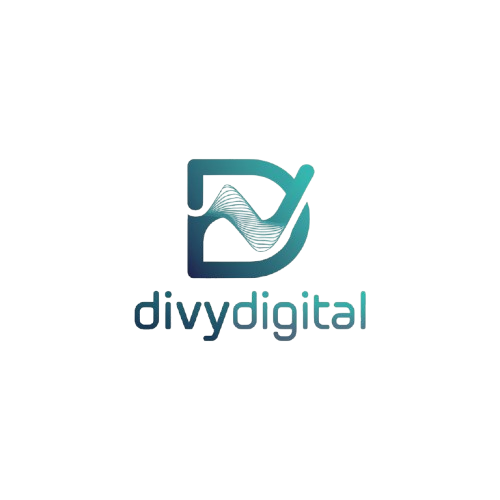We bring more Traffic & Leads to your Website instead of reasons..!
Best SEO Company in Lucknow - Divydigital.in
SEO, or Search Engine Optimization, is the practice of improving a website’s position and ranking in SERPs through several techniques and strategies.
Digital Agency for SEO
Our team of SEO professionals study and analyze your business and thereby become familiar with your business, your target audience, and your goals. Concerning upgrading your website we analyze the current site’s content, mapping, code, and keyword density to discover its weaknesses & strengths. Website technical audit is the first step of our SEO services.
We Focus On More Than Just Keywords Ranking
Strategy & Goal Development After analysis, we are able to collect maximum keywords which can generate tremendous traffic to your website. Our SEO Services team then develops a customized plan to take your current website and transform it into a site that begins to rank above your competition and higher for the keywords your target audience uses the most.
At The Divydigital
Countable Results The Divydigital accounts for a month-to-month premise that differentiates point-by-point information with respect to the accomplishment of your battle in a spotless and clear way Divydigital.
SEO SKILLS FOR DIFFERENT TYPES OF CONTENT
1. Keyword Research and Analysis: Find the keywords and phrases which are relevant for optimization.
2. On-page Optimization: Improve the website by optimizing meta tags, title tags, and heading tags.
3. Content creation and optimization: Develop high-quality, engaging content that targets particular keywords.
4. Link building and outreach: Build high-quality backlinks from authoritative sources.
5. Technical SEO: Ensure speed, mobile-friendliness, and crawlability of the website.

SEO SKILLS FOR DIFFERENT TYPES OF CONTENT
1. Keyword Research and Analysis: Find the keywords and phrases which are relevant for optimization.
2. On-page Optimization: Improve the website by optimizing meta tags, title tags, and heading tags.
3.Content creation and optimization: Develop high quality. Engaging content that targets particular keywords.
4. Link building and outreach: Build high quality backlinks from authoriative sources.
5. Technical SEO: Ensure speed, mobile freindliness and crawlability of the website.

What We Do
Company Services
Social Media
Integration
Keyword
Research
Quality Link
Building
Search Engine Result Page (SERP)
The algorithms of the search engine are powerful because they crawl, index, and rank the content on the entire internet. On this basis of the discovery of the content, the search engine provides an output to your query like an answering machine.
People search on the internet for products, services, expertise, or information. There could be several questions or phrases that one may write or voice search through the search engine for various types of products and services.
For instance, one may look up “Pet shop near me“ (local SEO). Therefore, when a pet parent looks for a pet shop near me, your web page should appear on the SERP.
However, you may wish your website to appear first on the first page. Most people rarely look beyond the first page, unless they are comparing information or don‘t get what they had been looking for.
How Search Engine Works
Web Crawler: This is a type of software program that constantly scans and indexes web pages.
Index: This is the massive database of information regarding the web pages such as keywords, content, and links.
Query Processor: This is the software program responsible for analyzing the search query to retrieve relevant results from the index.
Ranking Algorithm: The software program ranking retrieved results on relevance, importance, and user experience.
Crawling: The web crawler scans web pages, identifies new pages, and updates existing ones.
Indexing: The crawled data is stored in the index, which is organized by keywords, content, and links.
Query Processing: When a user submits a search query, the query processor analyzes the query, identifies relevant keywords, and retrieves a list of relevant results from the index.
Web Crawler: This is a type of software program that constantly scans and indexes web pages.
Index: This is the massive database of information regarding the web pages such as keywords, content, and links.
Query Processor: This is the software program responsible for analyzing the search query to the search query to retrieve relevant results from the index.
Ranking Algorithm: The software program ranking retrieved results on relevance, importance, and user experience.
Crawling: The web crawler scans web pages, identifies new pages, and updates existing ones.
Indexing: The crawled data is stored in the index, which is organized by keywords, content, and links.
Query Processing: When a user submits a search query, the query processor analyzes the query, identifies relevant keywords, and retrieves a list of relevant results from the index.
Search Engine Crawlers
Search engine crawlers, also referred to as spiders or bots, are software applications that perform a continuous scan and index the web pages to retrieve information for the search engines.
How do Search Engine Crawlers Work?
1. Discovery: The discovery takes place through links in existing pages, sitemaps, and submissions.
2. Crawling: Crawlers visit the discovered pages, read their content, and identify links to other pages.
3. Indexing: The crawled data is stored in huge databases referred to as indexes, which are organized by keywords, content, and links.
4. Updating: Crawlers revisit indexed pages periodically to update their content and links.
On Page SEO
1. Title Tag: A short, descriptive title that shows up in the SERPs and browser tabs.
2. Meta Description: A short summary of the page’s content, shown in the SERPs.
3. Header Tags (H1-H6): Organize the content with headings and emphasize key words.
4. Content Optimization: Use keywords organically within quality, interesting content.
5. URL Structure: Use descriptive, concise URLs that include target keywords.
6. Image Optimization: Using descriptive alt tags, file names, and compressing images will make them load faster.
7. Internal Linking: Linking to relevant and useful pages on your website
8. Mobile-Friendliness: Responsive design to ensure that the user has an optimal experience on all devices
9. Page Speed: Optimizing images, minifying code, and making use of caching to speed up the loading process
10. SSL Encryption: Having an SSL certificate installed to provide a secure connection and protect data entered by users.
Content Optimization Techniques
1. Keyword Research: Find relevant high- volume keywords using tools like Google Keyword Planner.
2. Latent Semantic Indexing (LSI): Use related keywords and phrases to make content more relevant.
3. Content Length and Quality: Develop complete, engaging content that answers users’ needs.
4. Content Freshness: Periodically update and refresh content to keep it relevant and authoritative.
5. Content Format: Use multiple formats of content, such as videos, infographics, and podcasts.

Off Page SEO
1. Link Building: Acquire good quality backlinks from authoritative sources in order to boost the authority of the website and ranking.
2. Social Signals: Increase engagement and shares on social media sites to increase traffic and improve ranking.
3. Local SEO: Optimize for local search by including NAP (name, address, phone number) consistently across the web.
4. Reviews: Ask customers to review on Google My Business, Yelp, etc.
5. Guest Blogging: Publish guest posts on other good authority sites to get backlinks and enhance authority.
6. Content Marketing: Develop high-quality, relevant, and valuable content to attract links and shares.
7. Influencer Outreach: Partner with influencers in your niche to promote your content and expand reach.
8. Brand Mentions: Monitor and encourage brand mentions across the web to increase awareness and authority.
Off-Page SEO Techniques
1. Resource Pages: Resource pages linking to other good– quality websites in your niche.
2. Broken Link Building: Identify broken links on other websites and replace them with a working link to a similar article on your website.
3. HARO (Help a Reporter Out): Answer journalist queries and get featured in major publications.
4. PR and Outreach: Connect with journalists, bloggers, and influencers to drive content and extend reach.
5. Content Promotion: Use email newsletters, social media, and paid advertising to promote content.
Technical SEO
1. Page Speed: Optimize images, minify code, and use caching to get the site loaded faster.
2. Mobile-Friendliness: A responsive design that ensures a great user experience across devices.
3. SSL Encryption: Install an SSL certificate on the site, ensuring a secure connection and protecting user data.
4. XML Sitemap: Create and submit a sitemap to help search engines understand site structure.
5. Robots.txt: Use robots.txt to communicate with crawlers and control crawling behavior.
6. Canonicalization: Define preferred versions of duplicate pages to prevent duplication problems.
7. 301 Redirects: Permanently redirect users and search engines to updated or replaced content.
8. Structured Data: Include schema markup for added context and information.
9. Website Architecture: Organize content using a logical hierarchy that makes it easier for crawlers to navigate.
10. Crawl Error Management: Monitor and resolve crawl errors to ensure that search engines can access the content.
Technical SEO Tools
1. Google Search Console: Track search engine rankings, crawl errors, and website performance.
2. Google PageSpeed Insights: Check the page speed and get optimization suggestions.
3. Screaming Frog: Crawling websites to find technical SEO issues and opportunities.
4. Ahrefs: Analyze backlinks, content, and technical SEO factors.
5. SEMrush: Analyze the websites for technical SEO issues and receive optimization recommendations.


WAnt to know more about services in seo
Contact Us
Connect with our Coach at 7275583166
Office Number
(910) 658-2992
Office Mail
dy40424@gmail.com
Office Address
999/2,Kumar Mandi Near Bal Vikas School, Telibagh Lucknow 22602.
Website – divydigital.in
Appointment
Let's Start Project
DivyDigital
Service
Website Development
Graphic Designing
Social Media Marketing
Support
Request a Proposal
Pricing & Packages
Help
999/2,Kumar Mandi Near Bal Vikas School, Telibagh lucknow 22602.
dy40424@gmail.com
7800769735

